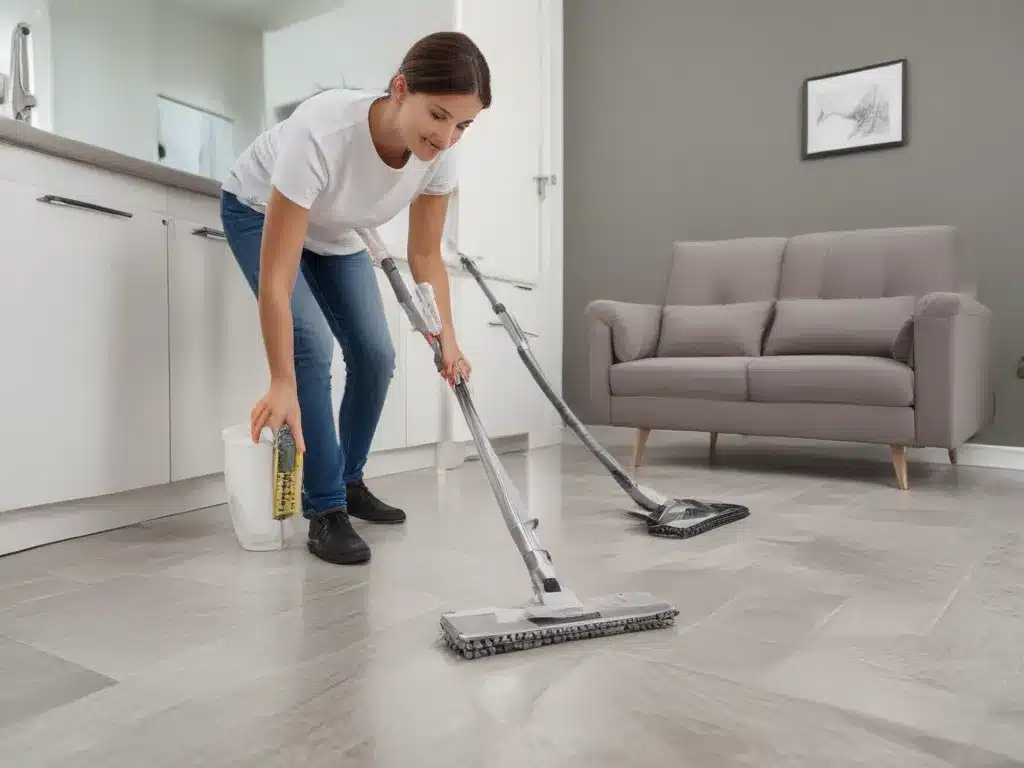The Needs of a Modern Household
As a homeowner, I understand the importance of maintaining a clean and organized living environment. However, the demands of work, family, and social commitments often leave little time for thorough cleaning. This challenge has led to a growing interest in AI-powered scheduling solutions that can streamline the process of booking cleaning appointments.
The Rise of AI-Powered Cleaning Scheduling
In recent years, AI technology has made significant strides in various industries, including the cleaning sector. AI-powered scheduling systems are now capable of analyzing data from multiple sources, such as household composition, cleaning preferences, and scheduling constraints, to create personalized cleaning plans tailored to each home’s unique needs.
How AI-Scheduled Cleaning Appointments Work
The process of scheduling an AI-powered cleaning appointment typically begins with the user providing relevant information about their home and cleaning requirements. This data can include:
- The size of the home (number of bedrooms, bathrooms, living areas)
- The frequency of cleaning desired (weekly, bi-weekly, monthly)
- Specific areas or tasks that require extra attention (deep cleaning, oven cleaning, etc.)
- Scheduling preferences (preferred days and times for cleaning)
The AI algorithm then analyzes this data, cross-references it with historical cleaning data from similar households, and generates an optimized cleaning plan. This plan includes the recommended cleaning tasks, the estimated time required, and the suggested schedule for the cleaning crew.
Benefits of AI-Scheduled Cleaning Appointments
1. Personalized Cleaning Plans
One of the primary advantages of AI-scheduled cleaning appointments is the ability to create truly personalized cleaning plans. The AI algorithm takes into account the unique characteristics of each home, ensuring that the cleaning tasks and frequency are tailored to the specific needs of the household.
2. Efficient Resource Allocation
By analyzing data from multiple households, the AI system can optimize the allocation of cleaning resources, such as personnel and equipment. This ensures that the right number of cleaners with the appropriate skill sets are assigned to each job, resulting in efficient and effective cleaning services.
3. Predictive Maintenance
AI algorithms can also leverage data from past cleaning appointments to identify patterns and predict potential maintenance issues. For example, the system may recognize that a particular area of the home requires more frequent deep cleaning or that certain appliances need regular maintenance. This predictive capability can help homeowners stay ahead of potential problems and prolong the lifespan of their belongings.
4. Convenience and Flexibility
With AI-scheduled cleaning appointments, homeowners can easily adjust their cleaning schedules based on their changing needs. The AI system can quickly adapt to new preferences or constraints, ensuring that the cleaning plan remains optimized and convenient for the household.
Real-Life Examples and Case Studies
To illustrate the benefits of AI-scheduled cleaning appointments, let’s consider a few real-life examples:
Example 1: A Busy Family of Four
Sarah and John are both working professionals with two young children. Their household cleaning needs are constantly evolving, with frequent spills, clutter, and the ever-changing demands of a growing family. By using an AI-scheduled cleaning service, they can provide their household details, and the AI algorithm will create a customized cleaning plan that adjusts as their needs change. The AI system may recommend bi-weekly deep cleanings for high-traffic areas and monthly maintenance for less-used spaces, ensuring that their home remains clean and organized without overwhelming their busy schedules.
Example 2: A Senior Citizen Living Alone
Mrs. Wilson, an elderly woman living alone, has mobility issues that make it challenging for her to perform certain cleaning tasks. With an AI-scheduled cleaning service, she can specify her unique requirements, such as focusing on floor cleaning and bathroom sanitization. The AI algorithm can then assign cleaners with the appropriate skills and allocate the necessary time for these tasks, ensuring that Mrs. Wilson’s home is well-maintained without compromising her safety or comfort.
Example 3: A Corporate Office Space
AcmeCorp, a thriving technology company, recognizes the importance of maintaining a clean and professional work environment for its employees and clients. By implementing an AI-scheduled cleaning service, AcmeCorp can provide detailed information about their office layout, high-traffic areas, and specific cleaning requirements (such as sanitizing conference rooms and break areas). The AI system can then create a comprehensive cleaning plan that ensures optimal efficiency and minimal disruption to the workday.
Conclusion
As technology continues to evolve, AI-scheduled cleaning appointments are becoming an increasingly attractive solution for homeowners and businesses alike. By leveraging the power of AI algorithms, these services can create customized cleaning plans tailored to the unique needs of each household or commercial space. With personalized cleaning schedules, efficient resource allocation, predictive maintenance capabilities, and enhanced convenience, AI-scheduled cleaning appointments are poised to revolutionize the way we approach cleaning and maintenance tasks.







